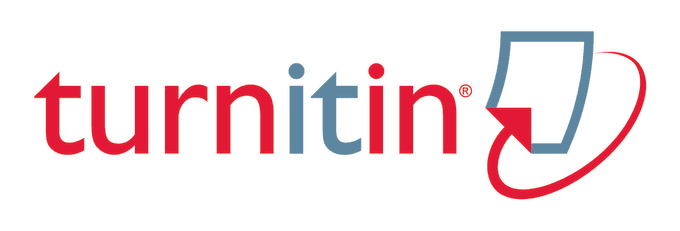The Relationship of Consumer Attitude and Government Regulations Towards Online Gambling Behavior in The Philippines
DOI:
https://doi.org/10.37535/101008220215Keywords:
Online Gambling;, Government Regulations,, Philippines;Abstract
The Philippine gambling industry, and particularly online gaming, has recently emerged as a major driver of the country’s economy. The rise of this controversial industry has become a cause of concern for many Filipino citizens. For the past two decades, Business Process Outsourcing (BPO) has been a major driver of the Philippine economy. However, a new sector of the economy has emerged that appears poised to take over traditional BPOs: online gambling. With the emergence of online gambling, any citizen can simply log into a website and they can play the usual casino games like poker, roulette, and slot machines or even sports betting. Online gambling is just like having a wallet in your pocket right now and just waiting for the money to come in, you just pull out your cellphone and you gamble already right away, that easy. Technically, engaging in online gambling is legal unless operated by a Philippine-licensed offshore company. Unlike other countries, the Philippines does not have strict mandates against gambling. The research aims to cover if consumer attitude and government regulations are significantly proportion with the effect of online gambling behavior. Adding to that, the researcher has added an intervening variable which is promotional ads if it has a direct impact adopting online gambling behavior. By using a quantitative analysis, the study recorded 100 respondents residing in the Philippines and studying their opinion towards this new addictive behavior relating to money. The materials and resources collected have concluded that consumer attitude and government regulations have significant impact towards this unlikely behavior, while promotional ads remain irrelevant.
References
Abbott, M. W., & Volberg, R. A. (1999). A reply to Gambino’s "An epidemiologic note on verification bias: Implications for estimation of rates". Journal of Gambling Studies, 15, 233-242
Babbie, E. (2010) The practice of social research 12th edition. Wadsworth:Belmont.
Bond, S., Jorm, A., Miller, H., Rodda, S., Reavley, N., Kelly, C., Kitchener, B. (2016). How a concerned family member, friend or member of the public can help someone with gambling problems?
Boreham, P., Dickerson, M., & Harley, B. (1996). What are the social costs of gambling: The case of the Queensland machine gaming industry? Australian Journal of Social Issues, 31, 425-44.
Dickerson, M. McMillen, J. Hallebone, E. Volberg, T. Woolley, R. (1997): Definition and incidence of problem gambling, including the socio-economic distribution of gamblers. Melbourne, Victoria: Victorian Casino and Gaming Authority
Dowling, N. (2014). The impact of gambling problems on families
Dymond, S., Roche, B. (2010). The Impact of Derived Relational Responding on Gambling Behavior
European Commission. (2011). Green paper on on-line gambling in the Internal Market.
Fisher, R.A. (1948). Biometry: Biometrics, 4, 217-219.
Figure 1 retrieved on Jan. 29, 2020 from https://www.statista.com/statistics/253416/global-gambling-market-gross-win/
Gainsburry, S. (2015). Online Gambling Addiction: The relationship between internet gambling and disordered gambling.
Gainsbury, S., Wood, R., Russell, A., Hing, N., & Blaszczynski, A. (2012). A digital revolution: Comparison of demographic profiles, attitudes and gambling behaviour of Internet and non-Internet gamblers. Computers in Human Behaviour, 28, 1388-1398.
Goodman, R. (1995). The luck business: The devastating consequences and broken promises of America’s gambling explosion.
Gory, Jay (2020). What are the laws about gambling in the Philippines? Retrieved from http://www.superbious.com/Legal/article_308_What-are-the-laws-about-gambling-in-the-Philippines.html
He, B., Johansson, D. (2014). Sustainable Gambling Business
Hedberg, J., Liikanen, J. (2012). “If you're gonna play the game, you gotta learn to play it right" Relationship marketing in the online gambling industry.
Holdsworth, L., Nuske, E., Tiyce, M. Hing, N. (2013). Impacts of gambling problems on partners: partners’ interpretations
Holtgraves, T. (2009). Gambling, Gambling activities, and Gambling problems
McCormick, A. V. & Cohen, I. M. (2007). A review of online gambling literature.
Moscovici, S. (1984). The phenomenon of social representations. In R. Farr and S. Moscovici (Eds), Social Representations(pp.3-69)
Parke, J., Parke, A., & Blaszczynski, A. (2016). Key issues in product-based harm minimization.
Platz, L., Millar, M. (2001). Gambling in the context of other recreation activity: A quantitative comparison of casual and pathological student gamblers.
Polit, D. F., & Hungler, B. P. (1999). Nursing research: principles and methods. Philadelphia: JB Lippincott Company.
Psychology Today. (2019). Gambling Disorder (Compulsive Gambling, Pathological Gambling). Retrieved from: https://www.psychologytoday.com/intl/conditions/gambling-disorder-compulsive-gambling-pathological-gambling
Sabbadin, D. (2017). Business of Gambling: impact on Italian economy, policies and regulation of the phenomenon
Sand, B. (2017). Gambling Regulation – Global Developments 2017
Skinner, H, Biscope, S, Murray, M., Korn, D. (2004). Dares to addiction: Youth definitions and perspectives on gambling
Wardle, H., Moody, A., Griffiths, M., Orford, J., & Volberg, R. (2011). Defining the online gambler and patterns of behavior integration: Evidence from the British Gambling Prevalence Survey 2010. International Gambling Studies, 11(3), 339–356.
Williams, R., Connolly, D. (2006). MATHEMATICS OF GAMBLING
Downloads
Published
Issue
Section
License
Copyright (c) 2021 Alexis Devera Lamoste, Yuliana Riana Prasetyawati

This work is licensed under a Creative Commons Attribution 4.0 International License.
Bagi artikel yang dimuat di Jurnal Communicare, berlaku aturan Hak Cipta sebagai berikut:
- Jurnal Communicare adalah pemegang hak untuk mempublikasikan artikel untuk pertama kalinya.
- Penulis tetap memegang hak cipta atas karya tulis yang terbit di Jurnal Communicare, dan dapat menggunakan karyanya dengan bebas, selama tidak melanggar peraturan.
- Karya yang dimuat di Jurnal Communicare berada dibawah lisensi Creative Commons Attribution 4.0 International License














